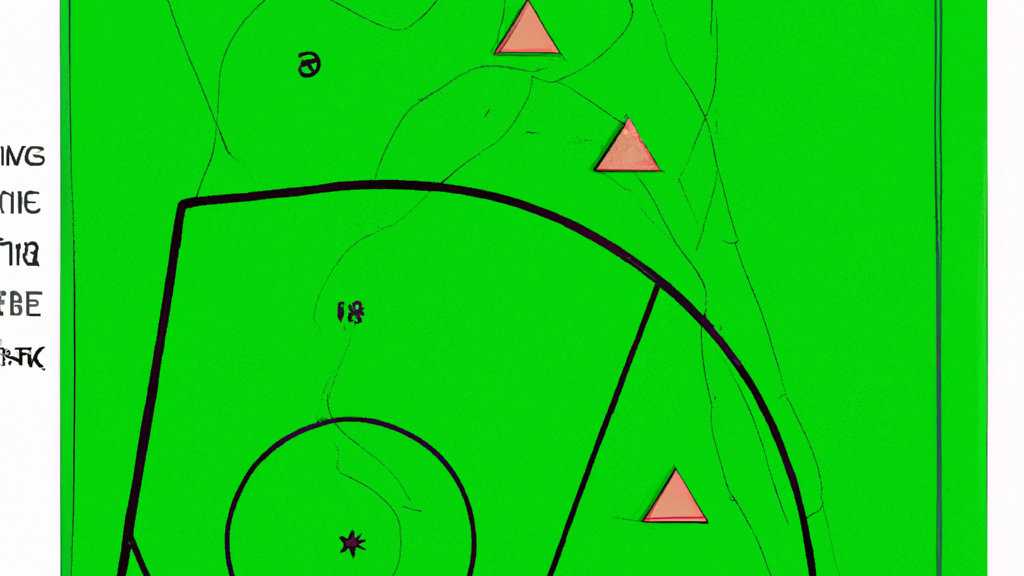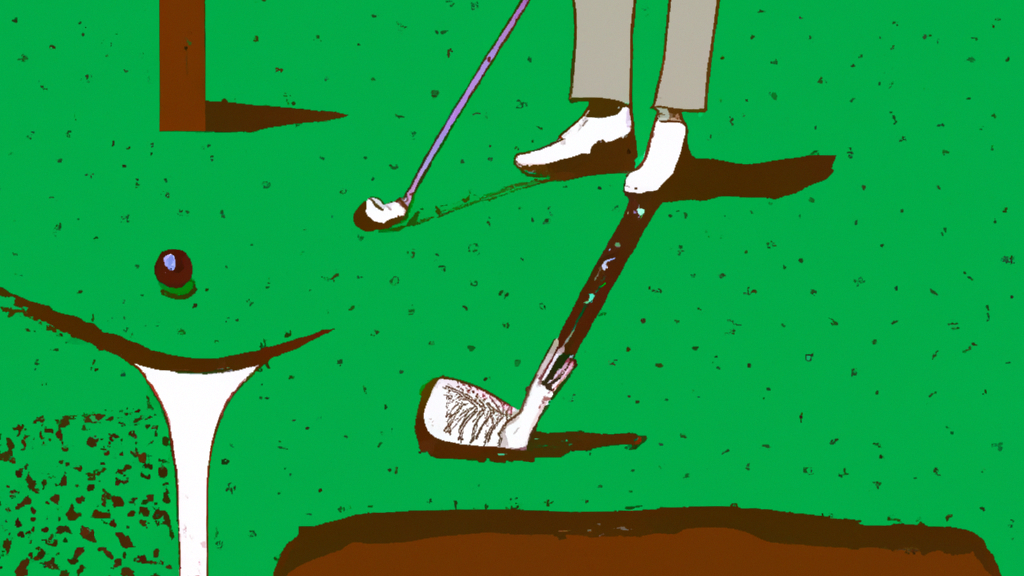THE PSYCHOLOGY OF GOLFING: HOW MINDSET AFFECTS PERFORMANCE ON THE COURSE
Golf is a game that requires both physical and mental prowess. While most golfers focus on improving their swing and technique, they often overlook the importance of mindset in their performance on the course. The psychology of golfing is a fascinating subject that explores how our thoughts, emotions, and beliefs affect our game. In this article, we will delve into the various ways in which mindset can impact your golfing performance, from pre-shot routines to dealing with pressure and adversity on the course.
Whether you are a seasoned pro or a beginner, understanding the psychology of golfing can help you unlock your full potential and achieve your goals on the course. So, grab your clubs and let’s explore the fascinating world of golf psychology together.

THE PSYCHOLOGY OF GOLFING: HOW MINDSET AFFECTS PERFORMANCE ON THE COURSE
Golf is a sport that requires a unique combination of physical and mental skills. While many golfers focus on improving their swing and technique, the mental aspect of the game is just as important. In fact, the psychology of golfing can have a significant impact on a player’s performance on the course.
Confidence
Confidence is a key factor in golfing success. When a golfer is confident, they are more likely to make good decisions, take risks, and perform at their best. On the other hand, when a golfer lacks confidence, they may second-guess themselves, hesitate, and make mistakes.
One way to build confidence on the golf course is to focus on past successes. By reminding themselves of times when they played well, golfers can boost their confidence and feel more positive about their abilities. Visualization is another powerful tool for building confidence. By imagining themselves hitting successful shots, golfers can create a positive mental image that can translate into better performance on the course.
Focus
Focus is another critical aspect of golfing success. Golfers need to be able to concentrate on the task at hand, block out distractions, and maintain their focus throughout the round. However, this can be easier said than done, especially when there are many external factors that can distract a golfer.
One way to improve focus is to develop a pre-shot routine. By going through the same steps before each shot, golfers can create a sense of familiarity and routine that can help them stay focused. Additionally, golfers can use mindfulness techniques to stay present and focused on the current shot, rather than getting caught up in past mistakes or future worries.
Decision Making
Golfers need to make many decisions on the course, from club selection to shot strategy. However, decision making can be challenging when a golfer is feeling stressed, anxious, or uncertain. In these situations, golfers may make impulsive or irrational decisions that can lead to poor performance.
One way to improve decision making is to practice mindfulness. By staying present and focused on the current shot, golfers can make more rational and thoughtful decisions. Additionally, golfers can use visualization techniques to imagine different scenarios and practice making decisions in a low-pressure environment.
Perfectionism
Many golfers strive for perfection on the course, but this can be a double-edged sword. While a desire for excellence can motivate golfers to work hard and improve their skills, it can also lead to unrealistic expectations, self-criticism, and frustration.
One way to overcome perfectionism is to focus on progress rather than perfection. By setting realistic goals and celebrating small successes, golfers can build confidence and motivation. Additionally, golfers can practice self-compassion by treating themselves with kindness and understanding, rather than harsh self-criticism.
Emotional Regulation
Golf can be an emotional sport, with highs and lows that can impact a golfer’s mindset and performance. However, emotional regulation is essential for golfing success. Golfers need to be able to manage their emotions, stay calm under pressure, and bounce back from setbacks.
One way to improve emotional regulation is to practice mindfulness. By staying present and aware of their emotions, golfers can better regulate their reactions and respond in a more constructive way. Additionally, golfers can use positive self-talk to reframe negative thoughts and emotions, and focus on the present moment rather than dwelling on past mistakes or future worries.
Conclusion
The psychology of golfing is a complex and fascinating topic. While many golfers focus on improving their physical skills, the mental aspect of the game is just as important. By understanding the impact of mindset on golfing performance, golfers can develop strategies to improve their confidence, focus, decision making, emotional regulation, and overall mental toughness. Whether you’re a beginner or a seasoned pro, the psychology of golfing is a crucial element of success on the course.

- Your Mindset for Playing Golf in the Wind
Wind gusts and swirling winds affect both the flight of the ball and the … You must stay above the weather in the golf course and not allow the wind to … - Golf Psychology, The Key to Your Consistency and Performance
May 26, 2017 … These chemicals reduce your fine motor skills, your touch and feel. How does this effect your putting? These chemicals make your mind busier and … - Dr. Bob Rotella: Inside the Golfer’s Mind | Instruction | Golf Digest
Jun 5, 2008 … Nothing will bother or upset you on the golf course, and you will be in a great state of mind for every shot. ‘. - Golf State of Mind
Throughout David’s playing career, he learned quickly how attitude, self-belief and mental toughness affect performance in golf. He knew that the mental game … - Sitemap | Sports Psychology for Golfers
Improve your mental game with golf psychology coach and Dr. Patrick Cohn, … The Instant Gratification Trap and Its Negative Effects on Performance … - Sport Psychology for Golf | InnerDrive
A golf sport psychologist can help you perform better on the course by improving your … which in turn affects your performance on and off the golf course. - On Slumps, Yips, and Danielle Kang’s Comeback in Golf | Sports …
The yips affected Danielle Kang’s performance for a long period of time. In 2017, Kang won her first LPGA Tour win at the KPMG Women’s PGA Championship but the … - The Golf Mindset: Mastering Mental Toughness on the Course …
Understand how your mind can affect your golf performance and how you can use mental strategies to improve your game. Developing laser focus, which is crucial … - Golf Anxiety: Dealing with Stress while Improving your Game – The …
Mar 16, 2020 … How anxiety, both somatic and cognitive, impacts golf performance … A lot of success in golf comes down to your mental game and mindset. - Golf Psychology – The Ultimate Guide – Golf Insider UK
Nov 28, 2022 … Great golf psychology helps you optimise your performance on any given day. Your golfing sponge. Every day that you step onto a golf course you …
Stuff about The Psychology of Golfing: How Mindset Affects Performance on the Course you didn’t know
- Golf is one of the oldest sports in the world, with its origins dating back to 15th century Scotland.
- The first recorded game of golf was played on March 26, 1297 by King James II of Scotland at Bruntsfield Links in Edinburgh.
- The term “caddie” comes from the French word “cadet,” which means younger son or assistant.
- In professional golf tournaments, players are not allowed to use a caddie who is also their spouse or family member.
- The longest hole in professional golf is the par-5 fifth hole at Green Eagle Golf Course in Germany, measuring a whopping 666 yards (609 meters).
- Tiger Woods holds numerous records in professional golf including being tied for most PGA Tour wins (82) and holding the record for lowest score over four rounds at a major tournament (-18).
- Many famous celebrities are avid golfers including Justin Timberlake, Samuel L Jackson and Bill Murray who even owns his own minor league baseball team called “The Charleston RiverDogs”.





